Nutrient Dense Foods
Food gives us
- Calories (energy)
- Nutrients that create structural components of our body (cells, tissue, bones etc) AND are vital for millions of chemical reactions happening in our bodies every moment of every day
Calories (and nutrients) come from macronutrients:
- carbohydrates
- fats
- proteins
Nutrient sufficiency comes from focusing on micronutrients:
- vitamins
- minerals
- phytochemicals (naturally occurring plant chemicals)
Eating large quantities of nutrient dense foods leads to optimal health. Consuming foods rich in nutrients and fiber and low in calories also fills us up. This prevents us from overeating.
This concept of nutrient density comes from Dr. Joel Fuhrman. Nutrient density = more nutrient per calorie.
[su_expanding_quote_without_link alignment=”right” source=”Joel Fuhrman, MD, Eat to Live” full_quote=”Most vegetables contain more nutrients per calorie than any other food and are rich in all necessary amino acids. The higher percentage of nutrient-dense plant foods in the diet allows us to predict freedom from cancer, heart attacks, diabetes and excess body weight. Fruits, vegetables, and beans must be the base of your food pyramid.” short_quote=”Most vegetables contain more nutrients per calorie than any other food and are rich”]The most nutrient dense foods come from plants because of their phytochemicals that are only now beginning to be understood. The concentration of phytochemicals is often highlighted by vibrant colors — purple, red, green, and orange. Eating a wide variety of these plant foods is the most beneficial. Each provides unique health benefits.
According to Dr. Fuhrman, the most nutrient dense foods are:
- Greens vegetables (spinach, kale, romaine)
- Beans (all kinds: peas, garbanzo, lentils etc)
- Onions and garlic
- Mushrooms
- Berries
- Seeds and nuts
They contain micronutrients that have profound protective effects.
- Protect us from cancers, atherosclerosis and diabetes
- Lower cholesterol
- Reduce inflammatory response (inflammation is linked to disease)
- Improve our defenses against environmental stresses
- Delay the onset of late-life diseases
- Enhance cellular repair mechanisms, including DNA repair enzymes, this strengthens our immune system
- Suppress genetic alterations associated with aging, reduces “old-age” conditions such as arthritis, osteoporosis etc.
Dietary patterns rich in nutrient dense foods lead to health. High-nutrient, low-calorie eating can increase lifespan as well as prevent chronic illnesses.
Raw vegetable consumption shows the strongest protective effect against cancer of any beneficial food. But less than 1 in 100 Americans consumes enough calories from plant foods to ensure this defense.
[su_expanding_quote_without_link source=”Joel Fuhrman, MD, Eat to Live” full_quote=”The diseases that afflict and eventually kill, almost all Americans can be avoided. You can live a high-quality, disease-free life and remain physically active and healthy. To achieve the results in preventing and reversing diseases and attaining a permanent healthy body weight, we must be concerned with the nutritional quality of our diet.” short_quote=”The diseases that afflict and eventually kill, almost all Americans can be avoided”]In general Americans are nutrient-deficient because the Standard American Diet is high in calories and low in nutrition. Over 90% of calories consumed by Americans come from refined foods or animal products.
What to Do?
Increase consumption of nutrient-dense foods. Make them a key part of your meals on a regular basis. Sustainably-sourced red meat is also nutrient-dense. But that’s a subject for another blogpost.
- Aim to get a variety of plant-foods into meals.
- Breakfast: Adds spices, seeds, nuts into oatmeal and homemade granola, mix/layer with seasonal fruits and whole-milk Greek yogurt or coconut milk. If making pancakes/muffins, add chopped or shredded fruits or veggies, spices, nuts/seeds. Smoothies is an easy way in increase variety: veggies, fruits, spices seeds, nuts.
- Omnivore meals include animal protein as a part of the meal ,rather than the centerpiece of the meal.
- Green (arugula, kale, spinach) based salad or cruciferous (shredded cabbage, cauliflower, brussels sprouts) based-salads every day either for lunch or dinner
- Nuts/seeds every day: in our oatmeal/granola/breakfast breads, in grains (quinoa, barly, rice) or salads.
- Beans 3 – 4 times a week. Hummus/bean dips are a great way to eat more beans: sandwich or wrap spread, dip for veggies and/or seed crackers for a snack, a dollop on salad.
For More Health Empowerment:
An acronym to remember the most nutrient-dense, health-promoting foods on the planet: Greens Beans Onions Mushrooms Berries Seeds/Nuts These are the foods that we should eat every day, and they should make up a significant proportion of our diet. These foods are extremely effective at preventing chronic disease and promoting health and longevity.
Originally published October 2020

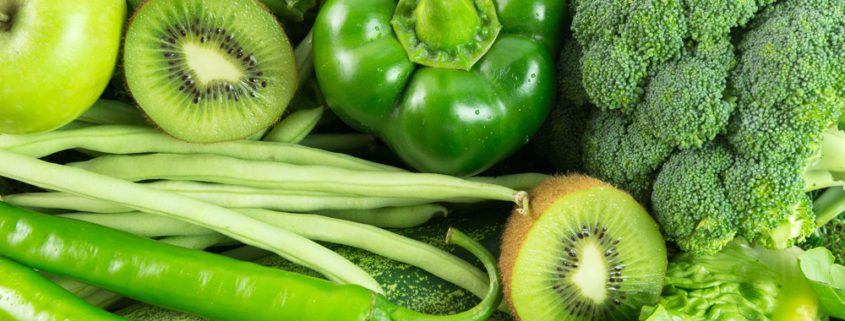
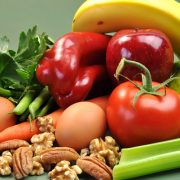

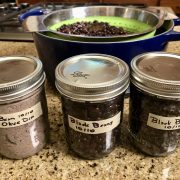
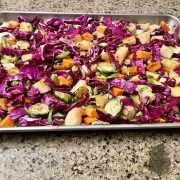
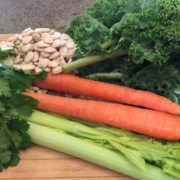
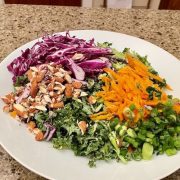
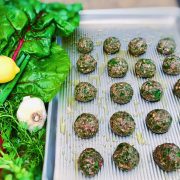
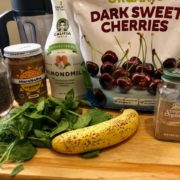

Leave a Reply
Want to join the discussion?Feel free to contribute!